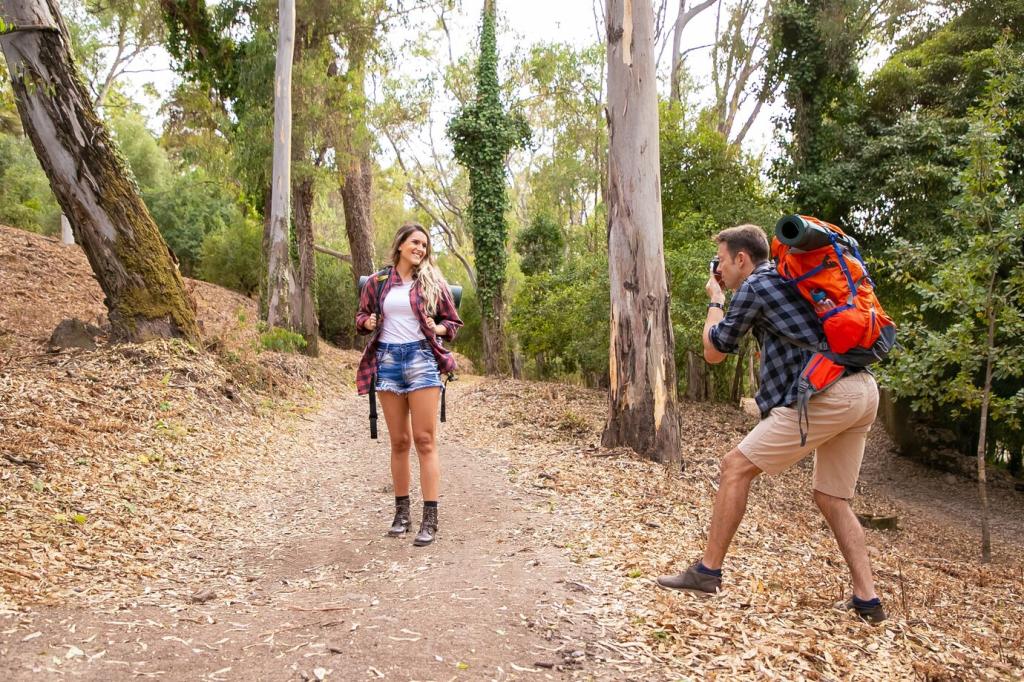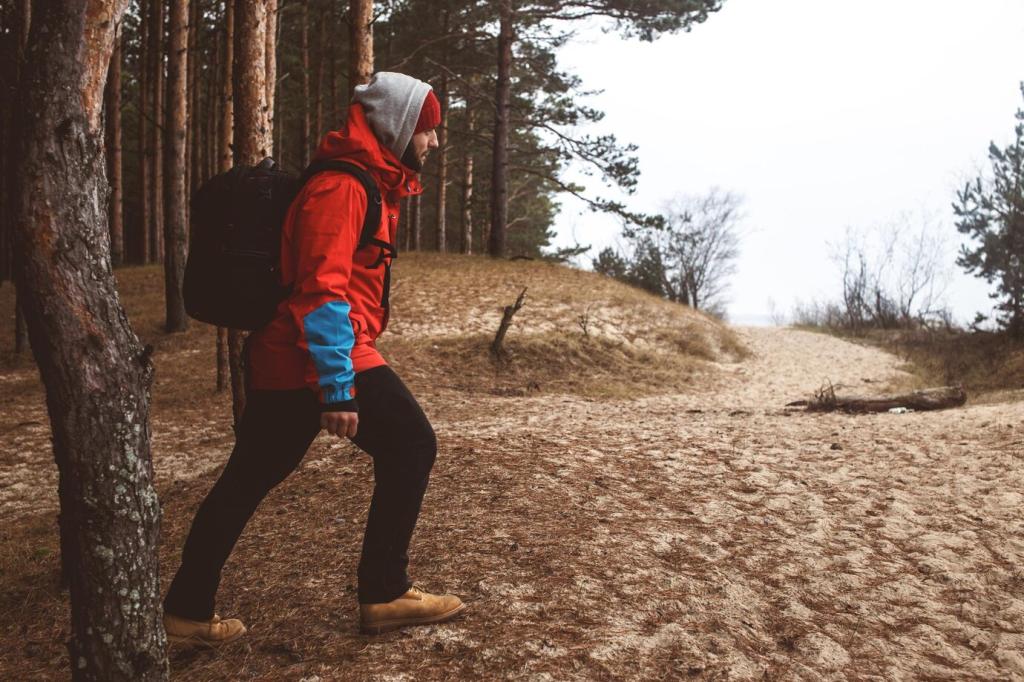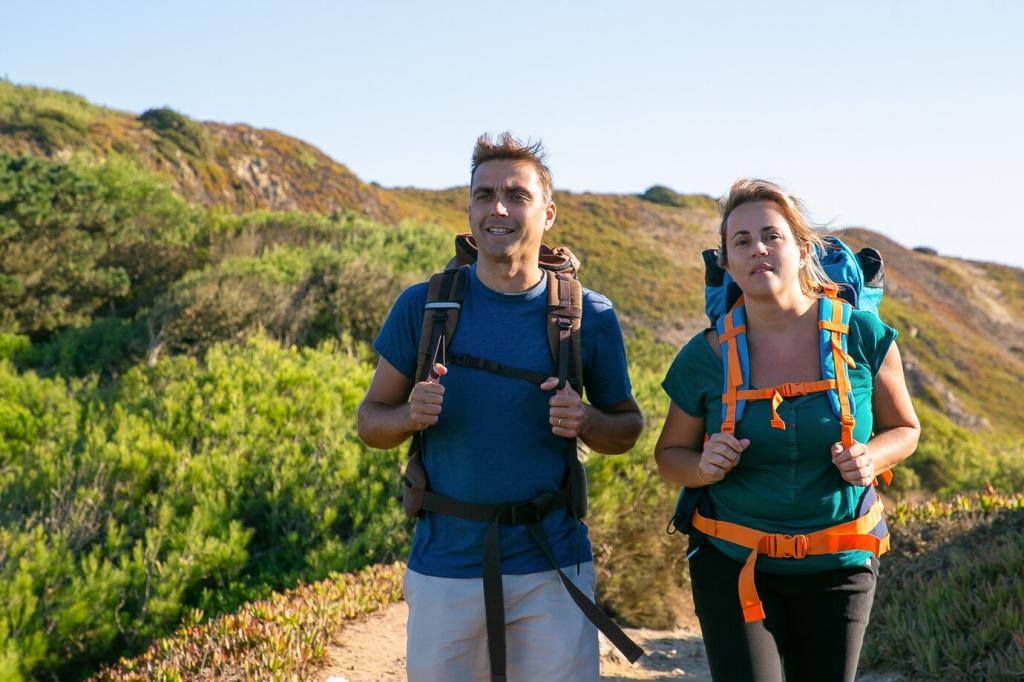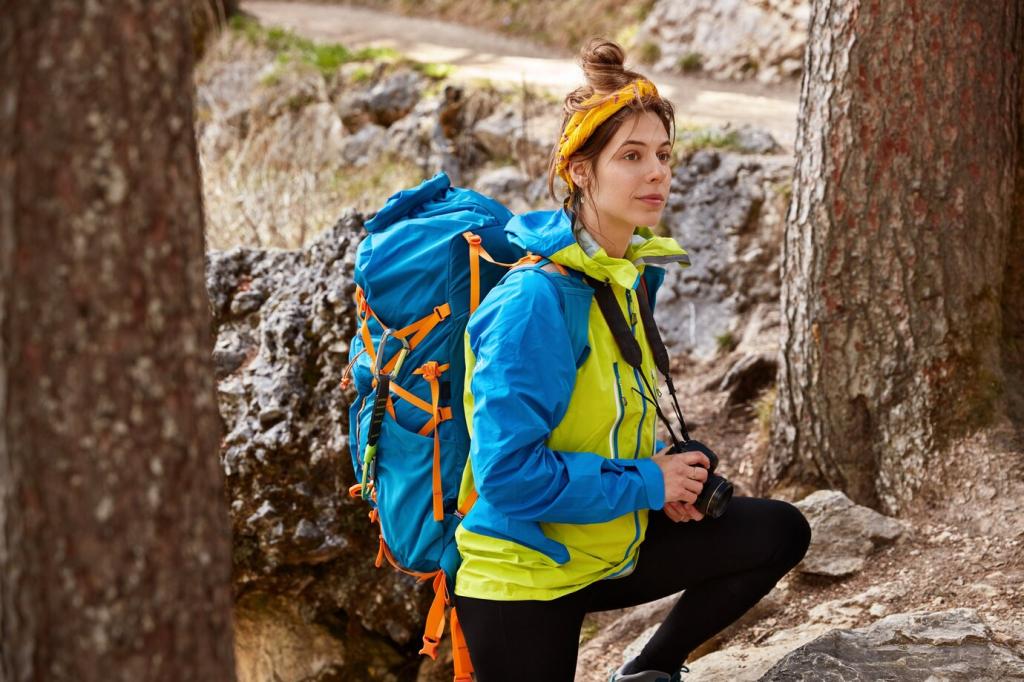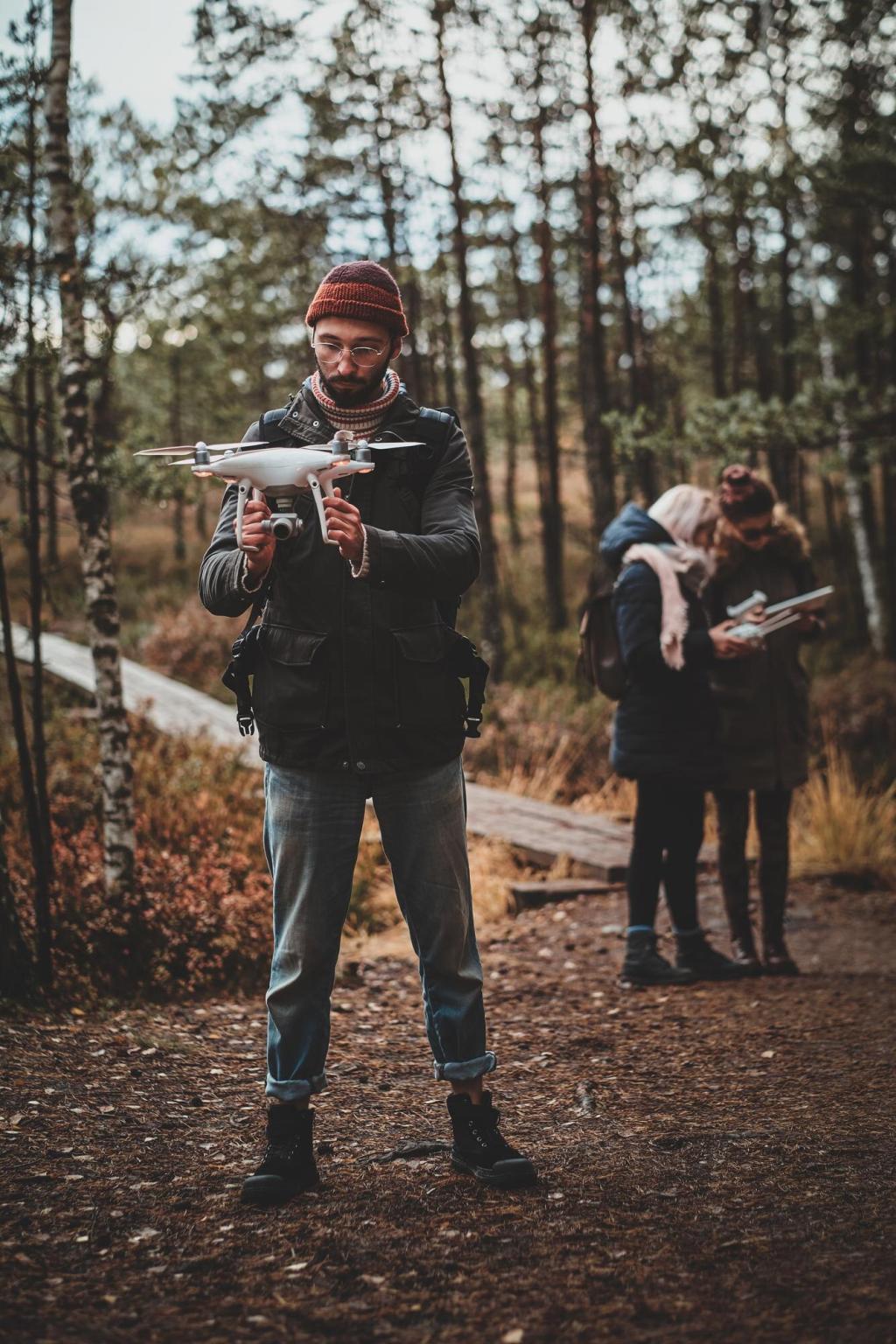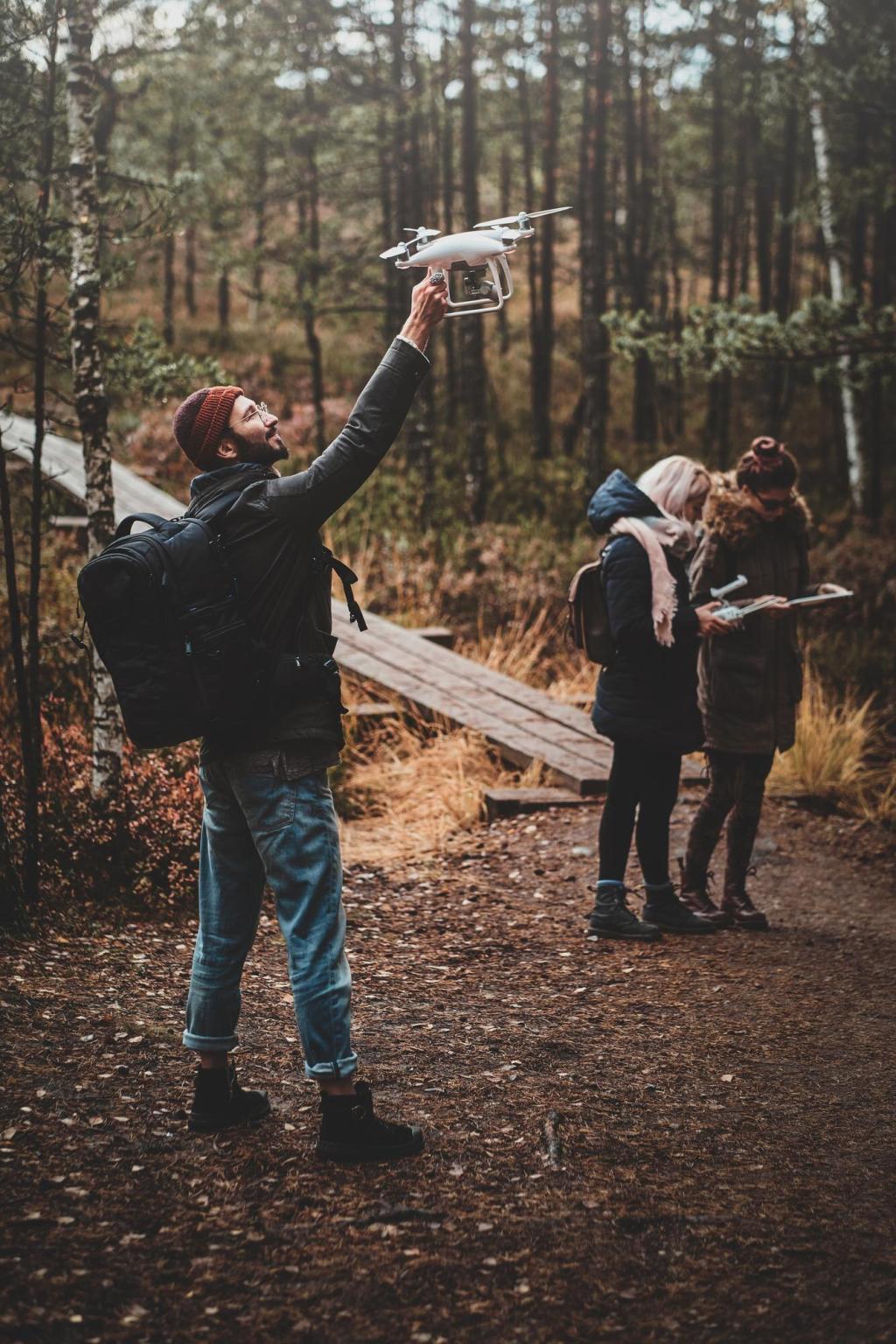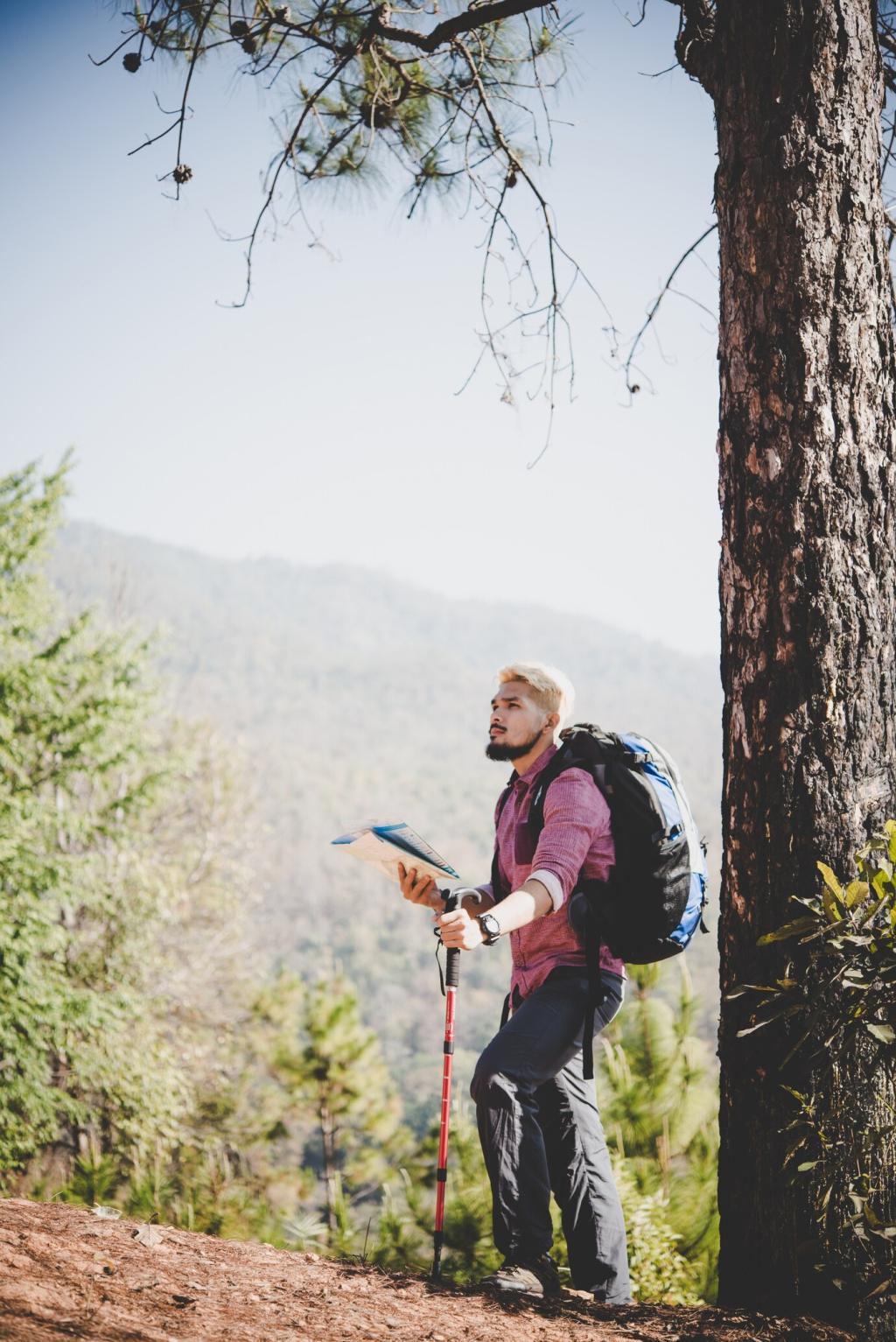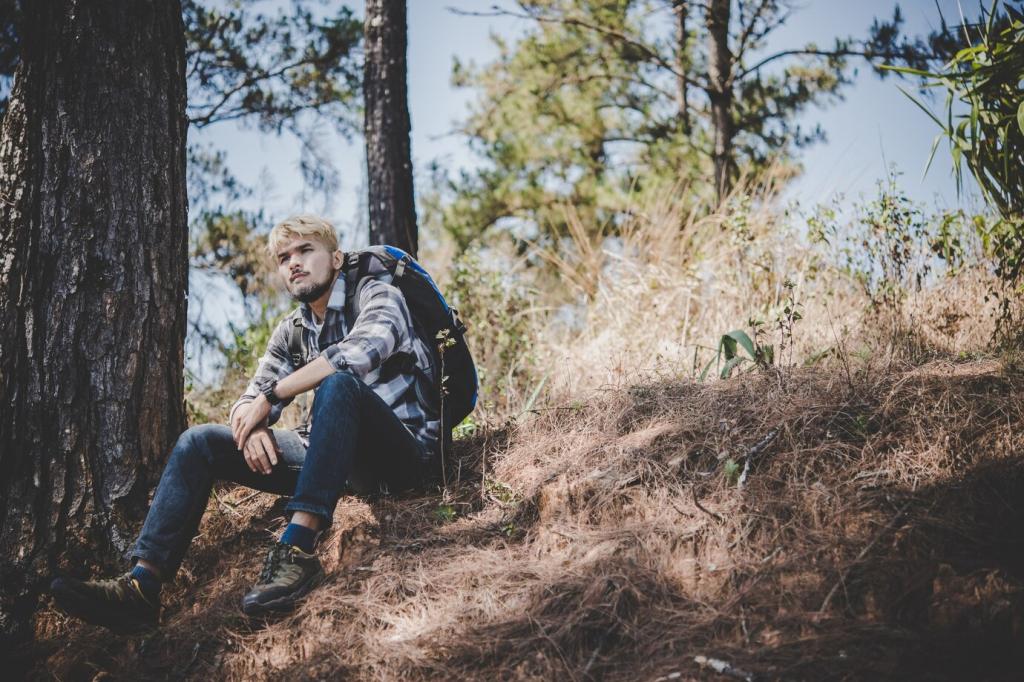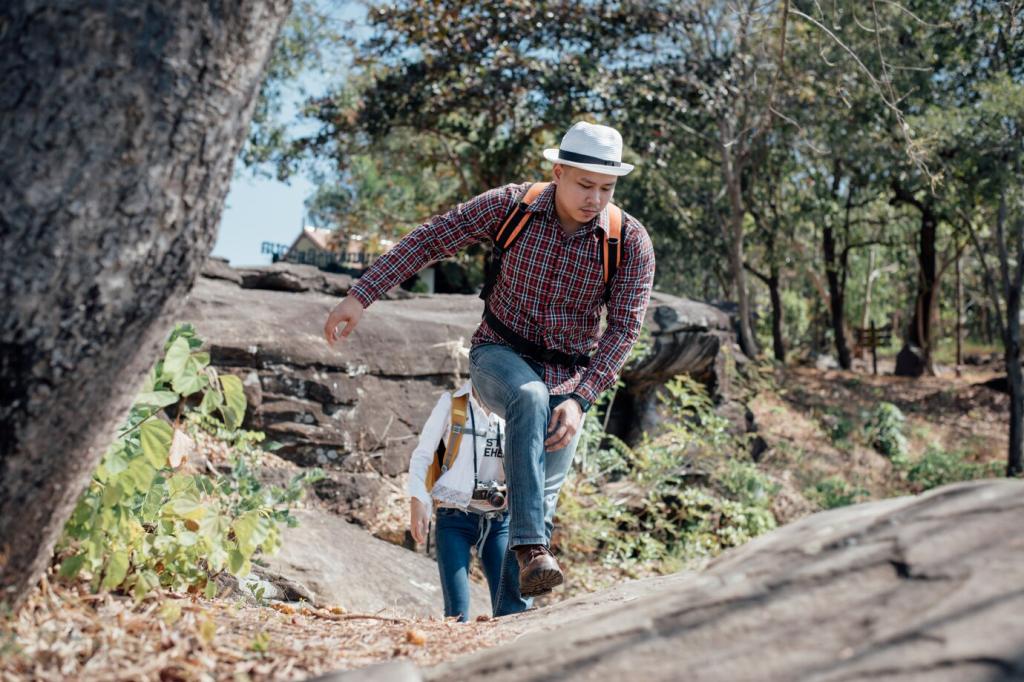Sustainable Food and Water on the Go
Pack snacks in reusable pouches or beeswax wraps: nut mixes, dried fruit, or hearty sandwiches. Choose foods that don’t shed crumbs everywhere. Pre-portion salty treats to maintain electrolytes, and bring a small pouch for used wraps so nothing escapes your pack onto the trail.
Sustainable Food and Water on the Go
Estimate your water needs based on distance, heat, and elevation. Bring a compact filter or purification tablets for refills. Sipping steadily prevents fatigue that might push you off route. Mark reliable water sources on your map to avoid last-minute detours through delicate terrain.

